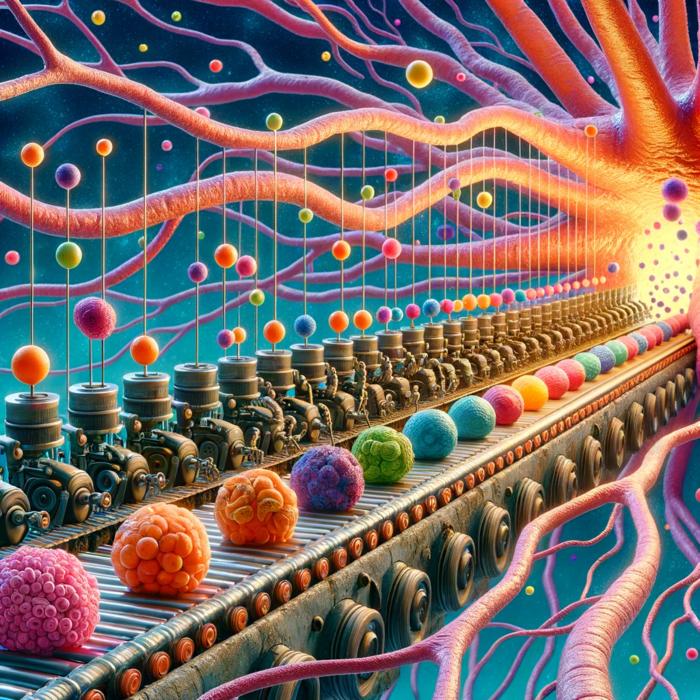AUBURN, AL – Researchers at Auburn University have made a groundbreaking discovery that sheds light on how our brain cells manage to efficiently replace older proteins. This process is crucial for maintaining effective neural communication and ensuring optimal cognitive function.

Credit: Auburn University Department of Physics.
AUBURN, AL – Researchers at Auburn University have made a groundbreaking discovery that sheds light on how our brain cells manage to efficiently replace older proteins. This process is crucial for maintaining effective neural communication and ensuring optimal cognitive function.
Published in the prestigious journal, Frontiers in Cell Development and Biology, the study titled, “Recently Recycled Synaptic Vesicles Use Multi-Cytoskeletal Transport and Differential Presynaptic Capture Probability to Establish a Retrograde Net Flux During ISVE in Central Neurons”, details how older proteins in brain cells are transported for recycling.
Dr. Michael W. Gramlich, an Assistant Professor of Physics at Auburn University, explains, “Cells in the brain regularly replace older proteins to maintain efficient thinking. However, the exact mechanism of how older proteins are targeted to be transported to where they need to be recycled remained an open question until now. Our research shows a specific pathway regulates how older proteins are transported to the cell body where they are recycled, allowing new proteins to take their place.”
This discovery has profound implications for understanding brain health. Without efficient protein replacement, neurons in the brain would degrade over time and become less efficient. Dr. Gramlich adds, “Our work reveals a regulatable pathway that can be modulated to accommodate increased or decreased brain function. This prevents the degradation of neurons over time.”
The study was a collaborative effort involving graduate student Mason Parkes and undergraduate student Nathan Landers. Impressively, as an undergraduate student, Nathan Landers performed advanced computational programming that was pivotal in understanding the results of this research.
“We were surprised to find that a single simple and regulatable mechanism determines when older proteins are chosen to be recycled,” Dr. Gramlich remarks, emphasizing the significance of their findings.
This publication is part of a collection focusing on trafficking and neural plasticity and learning. The researchers utilized a combination of techniques, including fluorescence microscopy, hippocampal cell cultures, and computational analyses, to determine the mechanisms that mediate older synaptic vesicle trafficking back to the cell body.
The Auburn University research team is excited about the potential applications of their findings in furthering our understanding of brain health and degenerative neurological conditions. Their groundbreaking work is a testament to the innovative research being conducted at the institution.
Journal
Frontiers in Cell and Developmental Biology
DOI
10.3389/fcell.2023.1286915
Method of Research
Experimental study
Subject of Research
Cells
Article Title
Recently recycled synaptic vesicles use multi-cytoskeletal transport and differential presynaptic capture probability to establish a retrograde net flux during ISVE in central neurons
Article Publication Date
6-Nov-2023




